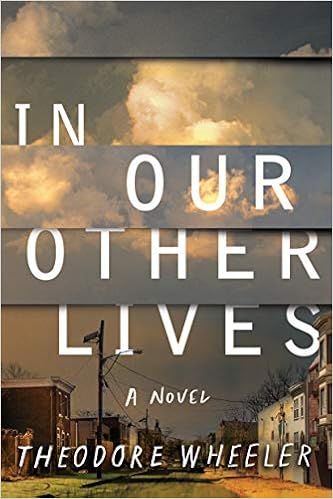FBI Special Agent Frank Schwaller arrives in Omaha, Nebraska, to investigate the family of Tyler Ahls, a young man who disappeared in Pakistan but has now shown up in a terrorist propaganda video. Schwaller’s task is to determine if Tyler is a hostage or a traitor who poses a threat to American people.
Much of the investigation focuses on Elisabeth Holland, Tyler’s sister. We learn of her marriage to Nick Holland. Nick abandoned the marriage soon after the
birth of their son Caleb who then died shortly after Nick’s disappearance. Elisabeth then decided to leave Chicago and pursue
a nursing career in Omaha. She claims
not to know where either her brother or husband is or what their reasons for
disappearing were.
The novel consists of twelve files detailing information gathered through
surveillance and interviews: “Everything
that happened could be recorded and coded.
Everything that could be known and filed was known and filed.” The book emphasizes how all Americans are
under surveillance: “In . . . any big
city, that’s millions of people . . . and nearly every minute of their lives
was recorded, their phone calls, any digital activity, all metadata, their stories. Even someone like Elisabeth Holland, who was
off the radar . . . before her brother’s activities made everyone in her family
a person of interest, she still wandered in front of surveilling eyes hundreds
of times. Her file built frame by frame,
byte by byte.” Schwaller’s case is
considered counterterrorism and he admits “That loosens the rules of what we
can do” so he can do virtually whatever he likes and “Worst case, I’m caught
poking where I’m not supposed to: throw
the Patriot Act in their face.”
Elisabeth is a foil for Frank. Her
way of coping is simply to stoically move on because trying to understand
others or God’s plan (if there is one) isn’t always possible and doesn’t
help: “’Some families fall apart and
some stay together, and it doesn’t always make sense why one is one and another
the other.’” Frank, on the other hand,
wants to understand everything: “Was
there any point in tracking the every gesture and disgrace of these
people? Sure there was.” He becomes frustrated when people are not
co-operative: “These people, they couldn’t
just answer his questions, they always wanted to take something from him
instead.” Even after the investigation
is over, Frank “kept tabs on them, from time to time because he came to see
them as his people. That’s the way it went
after an investigation.”
The theme of the novel seems to be that despite all the surveillance
and information gathering, there are mysteries that cannot be solved. People often remain mysteries even to those
who love them and should know them best. Elisabeth and her parents do not know what
Tyler’s motivation was in travelling to Pakistan. Likewise, she does not know why Nick left her
without any explanation. A man dies and
investigators cannot determine whether his death was an accident or suicide. Why would a man abandon nine children?
The style of the book, especially its long sentences, is sometimes annoying: “It would have been suspicious that Tyler
went missing, given what Nick knew – that Tyler was aware of the geopolitical
danger of moving to Peshawar and hiking the Hindu Khush, that Tyler’s emails
were increasingly erratic, made frequent references to David Koresh and John
the Baptist, and how Tyler wanted to be part of their tradition, his own
destiny as a missionary, a revolutionary (as he saw it), though Tyler had
trouble explaining how three trips to Pakistan fit in his vision – or how
hiking foothills there made him either insurgent or evangelist.” Yikes!
Meaning is lost in such verbiage.
This book is very much American, so it is sometimes confusing to this
Canadian reader. References to things
like the Patriot Act, and FISA mandates and warrants mean little to me: “There’s FISA, you know what that is? There’s mandate. Before, if I wasn’t sure it was okay to
access a file here or there, I had to get permission from a prosecutor, then
they talk to a judge. Each time! Now there’s no prosecutor involved. There’s hardly a judge, just a signature to
request and then I get carte blanche for ninety days.” How many people, even Americans, are going to
be familiar with the Foreign Intelligence Surveillance Act, its amendments and
its constitutionality?
The book was in some ways an uncomfortable read. I kept looking over my shoulder wondering who
was recording my activities and whether they would be considered “normal” or
not.
Note: I received a digital
galley from the publisher via NetGalley.

No comments:
Post a Comment